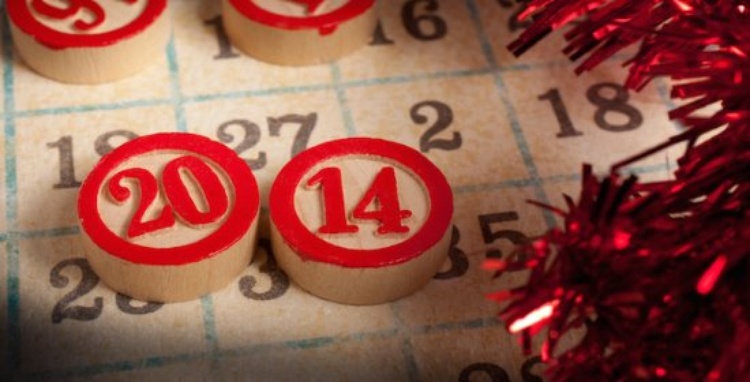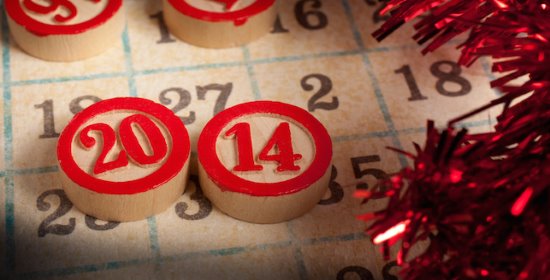La Tombola (Bingo)
At Christmas time, Tombola trumps all the other family games. It’s a fun game which can involve a large number of players.
Originating in the south of Italy as a combination of a Neapolitan game and a type of lottery, it is indirectly the result of a historic argument between King Charles III of Bourbon and Gregorio Maria Rocco, a Dominican friar. In 1734, in the Kingdom of the Two Sicilies, lotteries were banned but betting was rife, especially in Naples. The King wanted to legalise them so the State’s coffers could officially collect all the money spent on gambling.
The friar was against this proposal claiming that by officialising the lottery, the faithful would be further distracted from prayer and worship.
The King eventually had his way, but he and the friar came to a compromise: the game would be suspended over the Christmas period.
The Neapolitans (and other citizens of the realm), however, had no intention of giving it up, so they continued to play ....at home!
The ninety lotto numbers were put into “panarielli” (wicker baskets) and cards with numbers and matching pictures were crafted in order to keep a tally of the numbers extracted.
“La smorfia” is a system of symbolic numerology which expresses itself in the picking of lotto numbers. Each of the ninety numbers is represented by a symbol, which varies from town to town, and in Naples, from district to district, some terms allusive and often scurrilous. This system was then applied to the game of Tombola. Tombola is said to derive from the word meaning to tumble, as do the tokens in the basket; others believe it is linked to “tumolo” (mound), with reference to the pyramid shape of the same baskets.
How to play:
It’s actually quite simple. The caller has a pouch, plastic bag, barrel or other receptacle containing 90 tokens, balls or tiles with the numbers from 1 to 90, as well as a board with all 90 numbers printed on it. Cards depicting 15 random numbers arranged in three rows of five are bought by the players and the money collected is divided into five categories: ambo- 2 in a row; terno - 3 in a row; quaterna - 4 in a row; cinquina - 5 in a row; and tombola for all the numbers on the card.
As the caller extracts the numbers, he marks them on the board, as do the players on their cards. The first person who gets the combination of numbers in the same row, wins the amount put aside for that category.
Tombola is the ideal game to play with family and friends, especially where there are children, who seem to really love extracting the numbers, placing them on the board and naturally....winning.
Mercante in fiera (Merchant at the Fair)
This game dates back to early 14th century. It was presumably Geronimo Bambarara, a second-hand clothes merchant operating in the Rialto district of Venice, who invented this game and possibly, the first actual ‘lottery’. Bambarara started selling tickets for 20 soldi (silver coins) which would go into a draw. He had previously put aside cards (covered) with the winning numbers. Many people won and so did the enterprising salesman.
How to play:
The Mercante in Fiera is played with special cards, each with a different illustration - some quite bizarre. The object of the game is to buy a card hoping that it will be among the winning cards (usually three) which have already been drawn from an identical pack and set aside (covered) by the ‘merchant’ (dealer) who also ascribes a value to them, auctions them off and handles the exchange of money between players. As he begins to uncover the cards from the second deck, the player with the matching card discards that card. The players in possession of each of the (three) matching covered cards, win.
The game can be rendered more dynamic by players bartering, negotiating, selling or swapping among themselves. Two participants can even co-own a card!
At first glance, this game could appear complicated, but it can be played with children, too. The visual association of cards is simple enough, and kids are generally familiar with the concept of swapping and buying.
Sette e mezzo (Seven and a half)
The south of Italy has spawned another entertaining card game whose object it is to collect cards totalling 7 ½ points, without ‘busting’ by going over. Similar to Black Jack, but usually played with Neapolitan cards; each card has a nominal value apart from the picture cards which are worth half a point. The only exception is the “Re di Denari” (King of Diamonds, only instead of diamonds, it’s gold coins): this acts as “la matta” (joker or wild card) so it can substitute any other card and take on any value the player needs.
Children who can’t count yet are probably not suited to playing this particular game, but older children will find it very engaging.
Definitely of Italian origin but of uncertain date, this simple fast game has spread across the world giving rise to other versions. Like Tombola, its merit is that of literally bringing families together at the table on these wonderful occasions.
L’Assassino (The Assassin)
Again, Neapolitan cards are used here, but a version with poker cards also exists. To begin with, the dealer picks a number of cards equal to the number of players, preferably picture cards. The selection must include the Re di Denari (King of Diamonds), and the Asso di Spade (Ace of Spades).
The dealer hands out these cards face down. The player who receives the King will be the inspector, the one with the Ace - the assassin. All the others will be civilians. No one must show their card to anyone else. The ‘assassin’ will start winking at different players. Those who notice that they have been winked at, must acknowledge by this showing their card and declaring themselves ‘dead’. Dead men tell no tales, so it is absolutely verboten to reveal the assassin’s identity. The civilians can’t pretend to be the assassin. The inspector’s role is to uncover the assassin, by observing who does the winking. If he feels he has unmasked the bad guy, he will intimate an arrest by showing his card to the putative assassin. If he’s right, he wins, otherwise the real assassin claims victory.












